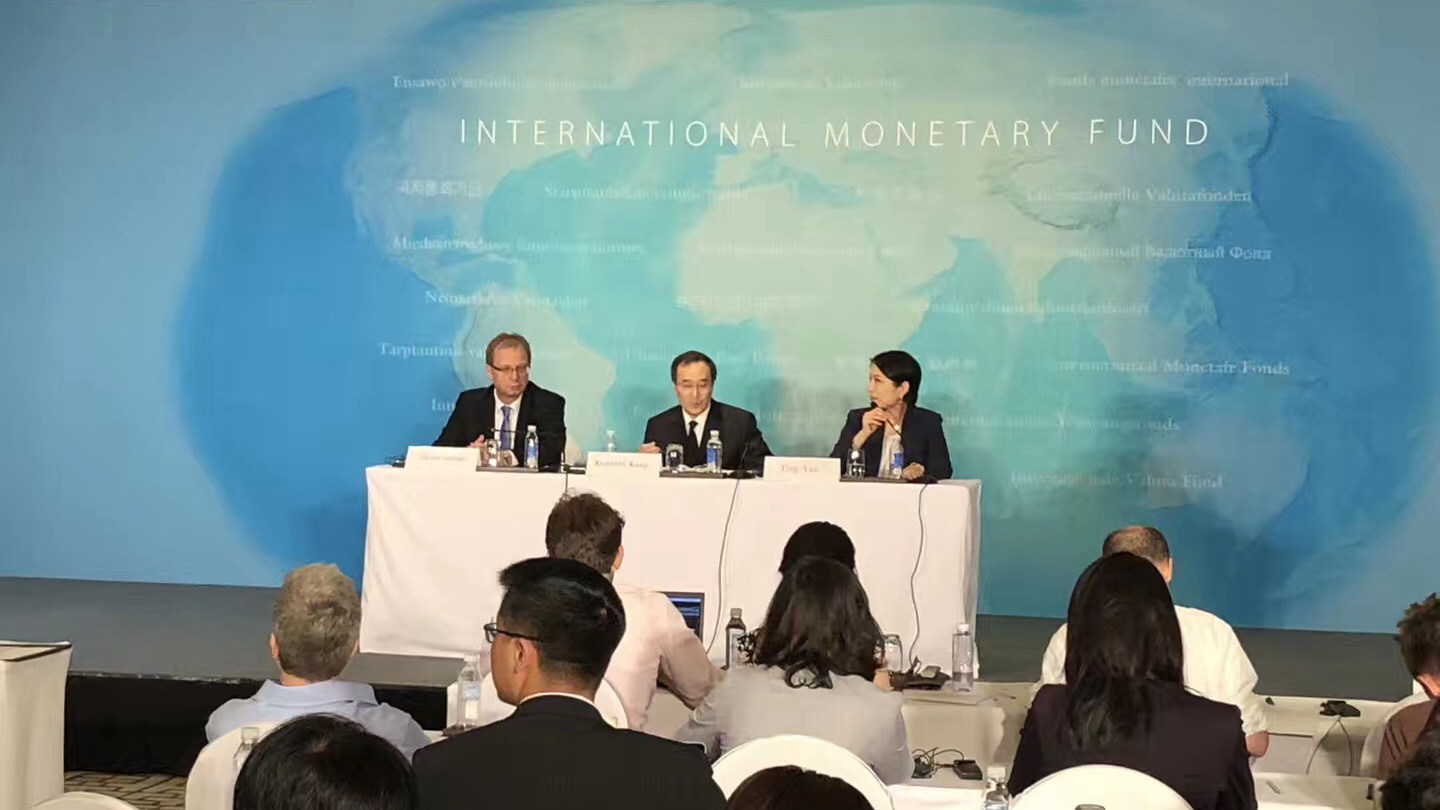
Economy
21:33, 05-Jun-2019
IMF: Fiscal stimulus needed if China-U.S. trade tension escalates
Cui Hui’ao, You Siyuan

The direct impact of further escalation of the China-U.S. trade war is highly uncertain, said an official from the International Monetary Fund (IMF) at a Wednesday briefing in Beijing. It is suggested that fiscal stimulus be rolled out by the Chinese government to maintain economic stability.
After a slowdown in 2018, China's economic growth stabilized in early 2019.
However, with the ongoing trade tensions between China and the U.S., IMF officials say uncertainty remains given the potential for further escalation.
"If tariffs remain at the current level, we don't see a need for further stimulus. In other words, the plans of stimulus so far are sufficient to stabilize growth at 6.2 percent. If the tension escalates, for example, if the U.S. were to impose additional tariffs, it's true that growth can be significantly affected, and in this situation, some temporary stimulus could be appropriate," said Kenneth Kang, deputy director of Asia and Pacific Department of IMF.

VCG Photo
VCG Photo
For example, Kang suggests China could pursue a fiscal expansion, which could be centrally financed, pro-rebalancing and targeted to low-income households, such as enhancing the social safety net like education and unemployment insurance, rather than expanding infrastructure through local governments.
With regard to monetary adjustment, IMF said there is a role for the adjustment if the inflation outlook weakens, and a more flexible and market-oriented exchange rate will benefit China, as it can serve as a shock absorber.
The organization said China's growth is expected to moderate to 6.2 percent and 6.0 percent in 2019 and 2020, respectively. The planned policy stimulus partially offsets the negative impact of the recent U.S. tariff hike. By 2024, the IMF predicts the growth to gradually slow to 5.5 percent, but towards a more sustainable path.
Meanwhile, regardless of the trade war, Kang points out it is in China's long-term interest to push for structural reforms and enhance competition, such as by leveling the playing field for private companies, removing implicit guarantees for SOEs as well as hardening their budget constraints.
"One is to continue the de-risking, and de-leveraging to address financial vulnerability. Second is to look for ways to boost consumption, while slowing the pace of investment. Third is to increase the role of the private sector, to a further opening-up of trade and investment," said Kang.
The organization also said China's increasingly complex economy requires modernizing policy frameworks towards more market-based and transparent frameworks.

SITEMAP
Copyright © 2018 CGTN. Beijing ICP prepared NO.16065310-3
Copyright © 2018 CGTN. Beijing ICP prepared NO.16065310-3